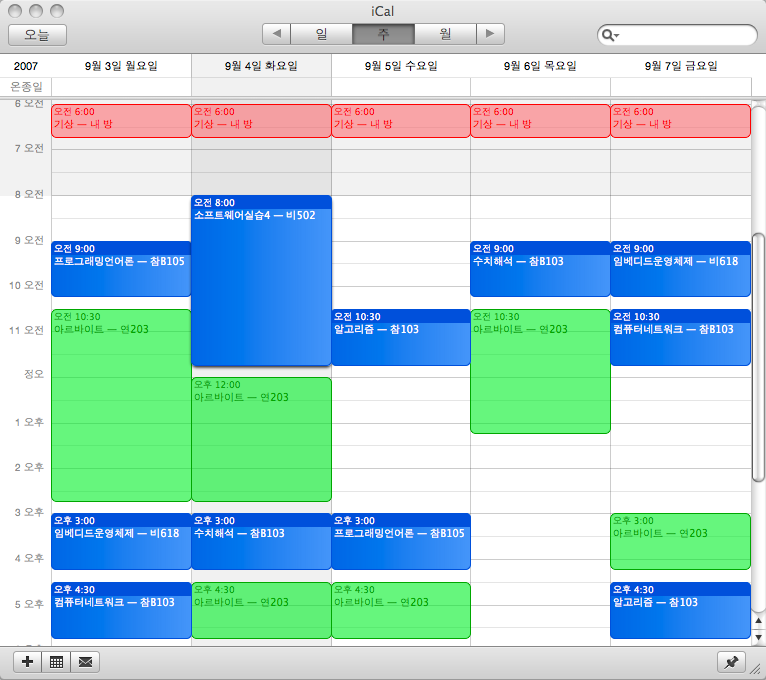이번에도 새삼스레 느꼈지만 얕은 지식으로는 아무것도 할 수 없다는 것.
어쨌거나 이미 끝난 시험이니 미련두지 말고, 기말을 잘 준비해야지.
과거를 돌아보며 후회하지 말고, 미래를 준비하라.
/* Numerical Analysis Homework #1 */
/* Department of Computer Science */
/* 2003721181, Lee Seong woo */
/**************************************/
#include <stdio.h>
#include <math.h>
double logB(double x, double base);
double func(double p);
int getIterations(double tolerance, double startPoint, double endPoint);
int main(void)
{
double a = 1.0, b = 2.0, tolerance = 0.0005;
int i, repeat;
// 주어진 Tolerance를 이용해서 필요한 반복횟수를 구함
repeat = getIterations(tolerance, a, b);
printf("---------------------------------------------------------------------n");
printf("n an bn pn f(pn)n");
printf("---------------------------------------------------------------------n");
for(i = 0; i < repeat; i++)
{
if(func(a) * func(a + ((b - a) / 2)) < 0)
{
printf("%dt%.10ft%.10ft%.10ft%.10fn",
i + 1, a, b, a + ((b - a) / 2), func(a + ((b - a) / 2)));
b = a + ((b - a) / 2);
}
else
{
printf("%dt%.10ft%.10ft%.10ft%.10fn",
i + 1, a, b, a + ((b - a) / 2), func(a + ((b - a) / 2)));
a = a + ((b - a) / 2);
}
}
printf("---------------------------------------------------------------------n");
return 0;
}
// 밑을 임의로 정할 수있는 로그함수
double logB(double x, double base)
{
return log(x) / log(base);
}
// 해를 구하기 위한 함수
double func(double p)
{
return pow(p, 3) + 4 * pow(p, 2) - 10;
}
// Tolerance에 따른 반복횟수를 구함
int getIterations(double tolerance, double startPoint, double endPoint)
{
return ceil(logB((endPoint - startPoint) / tolerance, 2));
}

